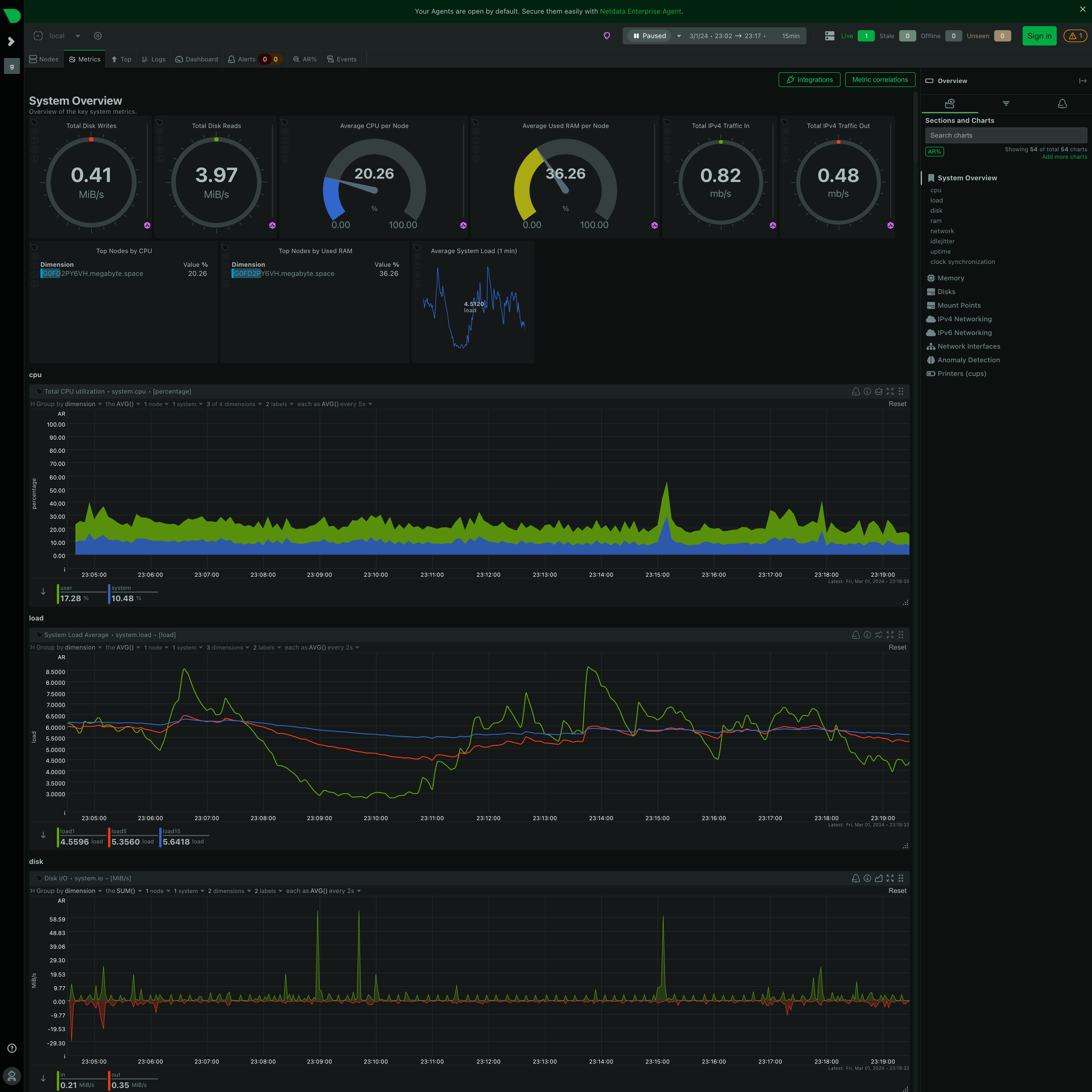Netdata Integration
Install Doctor allows the user to monitor detailed system metrics by leveraging Netdata. The free web service provides a useful, slick, detailed interface where you can browse through charts that detail important metrics like the amount of RAM being used. The service manages to offer an amazing free service because they offer a paid upgrade that features extended log rentention (among a few other features).

Configuration
To automate the provisioning process of Netdata, you need to make several variables available for Install Doctor (otherwise, you will only be able to access the device's local Netdata dashboard at http://localhost:19999 when the service is running). These variables include:
NETDATA_TOKEN- This is the--claim-tokendata value shown by the Netdata cloud service app start page when you first login to Netdata CloudNETDATA_ROOM- This is the--claim-roomsdata value shown by the Netdata cloud service page that is displayed when you first create a new room
Using the methods described in the Secrets documentation, you can provide Install Doctor with these data points so that it can automatically configure and connect your local Netdata instances to the free Netdata Cloud service.
Alerts
The Netdata service can be configured to automatically dispatch alerts when system parameters match certain triggers. For more details, see Netdata's documentation on setting up alerts.
A handful of cloud notification services, including e-mail, are integrated into the default configuration via the Netdata notification configuration. With this configuration and secrets specified in home/.chezmoitemplates/secrets, you can headlessly deploy Netdata coupled with notification systems.